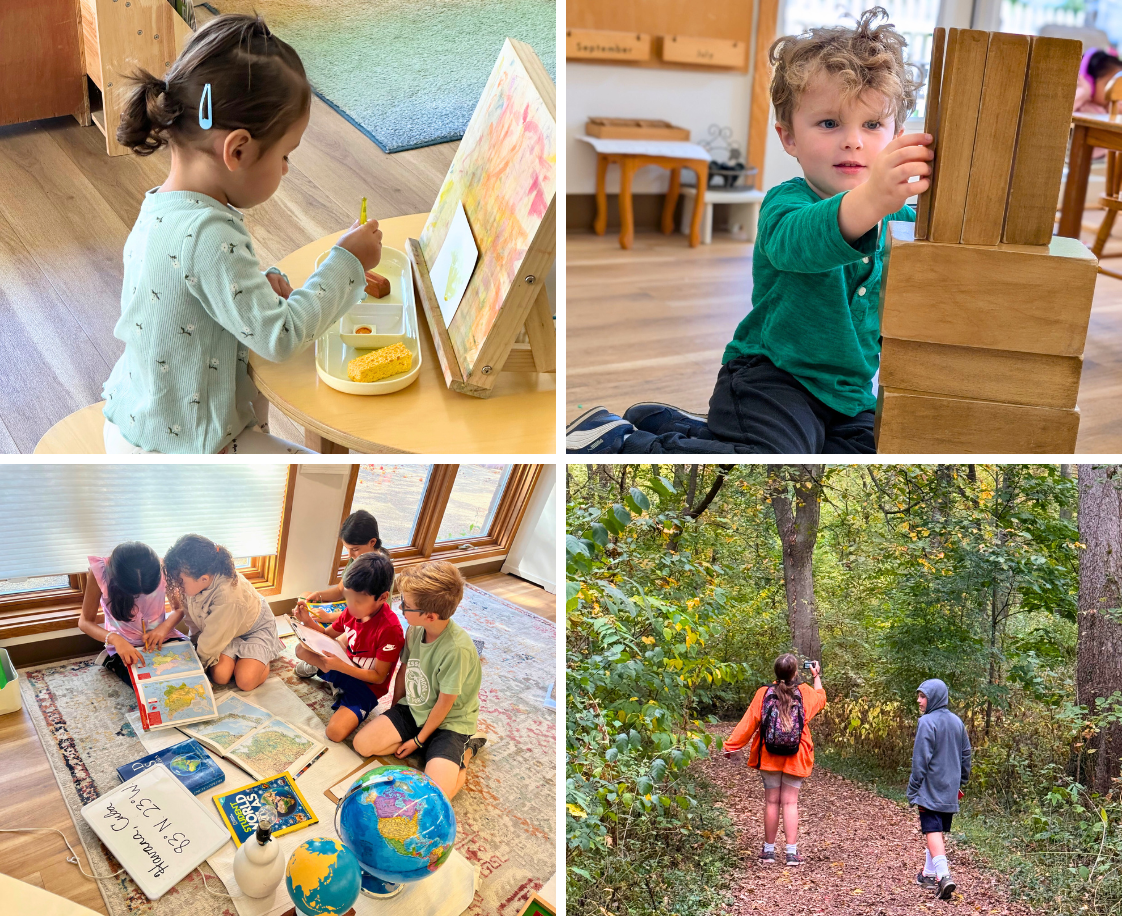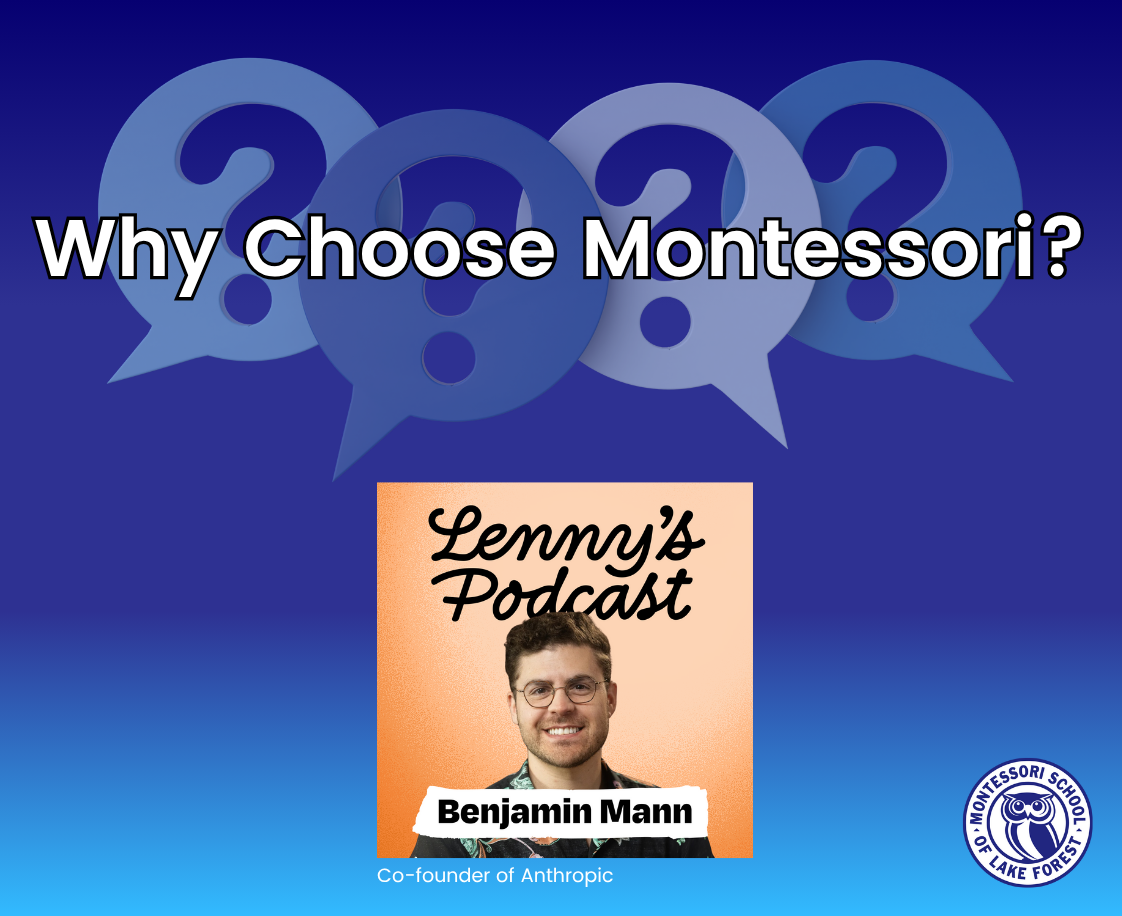Dear MSLF Families,
Did you know that in a good Montessori school, most things stay the same? We aim for consistency in faculty and staff and programs, and in the routines and lessons and work materials that envelop the children every day. But there is one thing that changes, and that is the ever-rising number of children enrolled here at MSLF!
This fall a very interesting phenomenon has been taking place at MSLF, whereby a surprising number of children are coming to us from good-and very local- public schools, for a very simple reason: they became bored and frustrated. Some of these children left after Extended Day and are now returning, others are new to Montessori. In both cases, they come from the very schools that we pay high taxes to support, and that our school districts and neighbors assure us are good.
During their first few days with us, each transferring child has begun to shed the impact of traditional education on their love of learning. For example, during a math lesson, one child said, “You’re teaching me MULTIPLICATION!” and ran from her chair to hug her new teacher. Another child matter-of-factly said, “I can’t do that. I was in the lowest math class.” And another child said, “No homework?!” Never fear, their love of learning wasn’t extinguished, and while one child revels in learning multiplication, the other learns that she can indeed do hard things. And all of them enjoy the respite from regimentation that allows them to control their own time and thoughts, after school.
It’s not that traditional education is “bad,” it’s just that it serves a very different purpose than does Montessori education. Let’s not kid ourselves: the job of traditional education is to educate, as well as possible, all of the children in a district, whatever their numbers or needs, whatever the wealth of the district. It’s a system of thought which necessarily relies on metrics to get the job done and to assess itself. The job of Montessori education is to educate the whole person , child by child, according to the indisputable needs of the developing body and brain.
Education seeks to secure the future of society, and it is a crucial responsibility. Both forms of education are expensive, the one perhaps more than the other. And until we have established excellent Montessori education in the public schools, it will continue to cost a lot. But Montessori education is well worth paying for now. While there are no scholarships and only very limited financial aid for pre-college education, college scholarships are increasingly hard to come by, as increasing numbers of traditionally-educated applicants present virtually identical credentials.
But anecdotal evidence from various Montessori alumni communities demonstrates that surprising numbers of Montessori alumni are being accepted at, and receiving scholarships from, a wide range of prestigious colleges and universities. High schools report that students with Montessori backgrounds consistently thrive in high school and excel in their college application acceptance rate. And colleges are showing consistent, clear interest in Montessori-educated applicants. This is happening for the simple reason that Montessori- educated applicants don’t look or sound like everyone else. They sound like themselves-like young people who know who they are, what they want, and how to achieve their goals.
It’s well worth it to pay the money now for a solid Montessori education: Not only will you see your child educated to become a highly resourceful person, but you will also very likely see them able to win awards and scholarships that seem increasingly elusive for many youth, but not for Montessori alumni, AND in the end, you will benefit from them becoming well-rounded, respectable citizens of our world.
We appreciate your family making the commitment to a Montessori education and look forward to the opportunity to continue educating your child.
Ann Jordahl
Executive Director
The post A Note From Ann: Re-enrollment Coming Soon! appeared first on Montessori School of Lake Forest.






